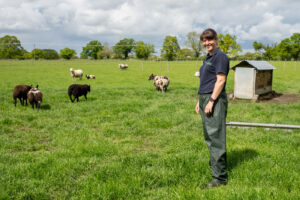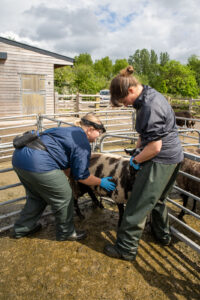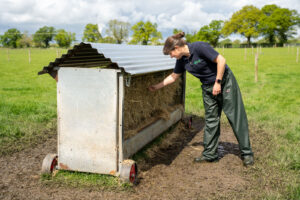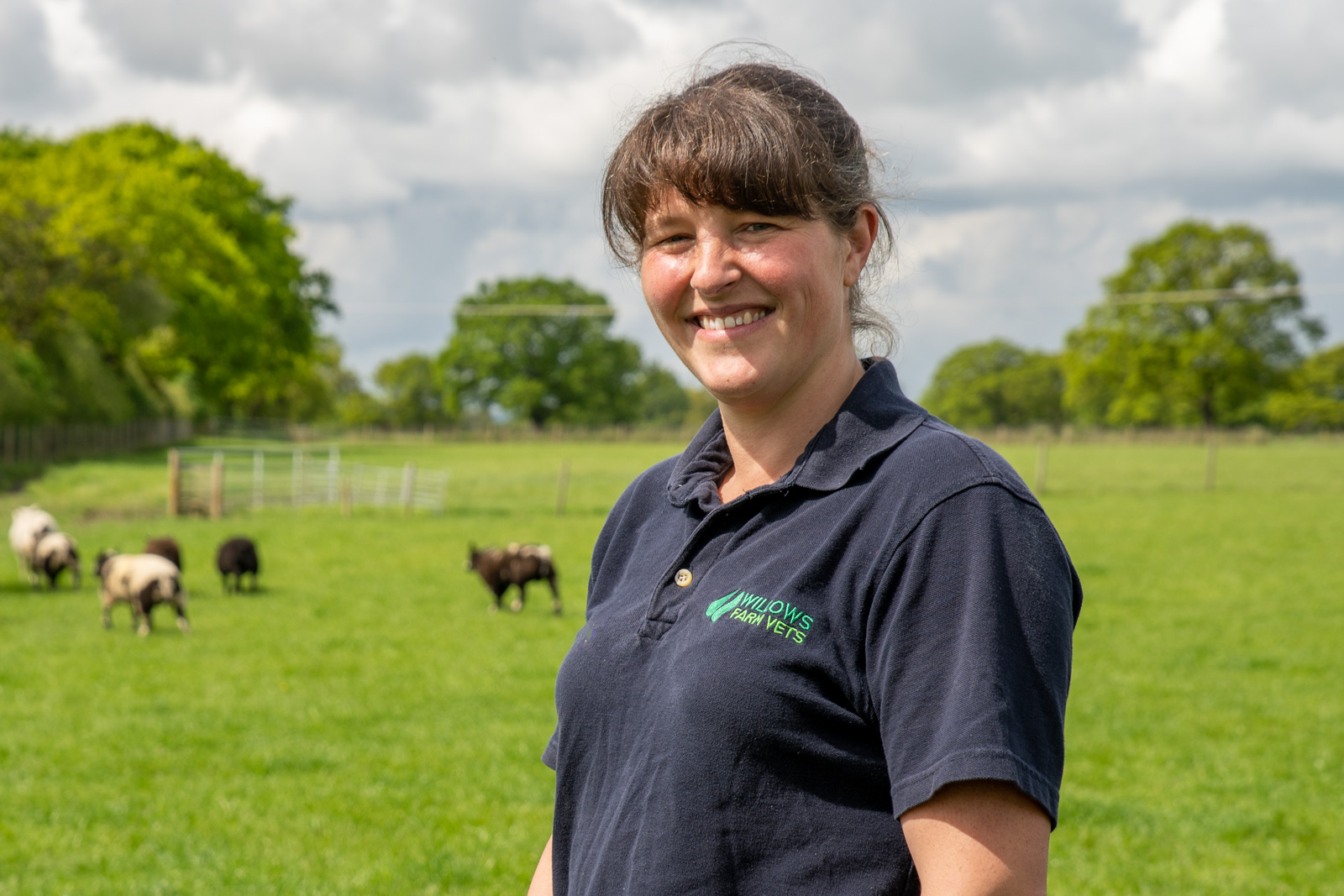VetPartners is dispelling the myths about what it takes to be a farm vet.
We’re building diverse, welcoming workplaces where colleagues from all backgrounds can enjoy fulfilling, impactful veterinary careers even if they did not grow up on a farm.
Here, Isobel Johnston shares her career journey and how she has broken the farm vet stereotype….
FARM vet Isobel Johnston isn’t only there for her clients when circumstances are challenging.
Isobel has shared many of life’s memorable moments, such as weddings, funerals and the birth of her children, with the farming families with whom she has built strong bonds.
She’s laughed over a cuppa in farm kitchens and been a shoulder to cry on during tough times.
Being a farm vet is a job unlike any other and it is one of the reasons why Isobel, who works for Willows Farm Vets in Cheshire, is still as passionate about her career as she was as an enthusiastic new grad from the Royal Veterinary College in 2007.
“When you’re a farm vet with close links to a community, you develop great relationships with clients and you can’t help but blur the lines between your job as a vet and becoming friends,” said Isobel.
“I didn’t experience that in small animal practice and it makes being a farm vet really quite special in the way you become part of the team.
 “The job is never mundane as my days can be action-packed and often unpredictable. You meet really interesting people, get to see how farms are all run differently, and you’re able to go out and about and experience the wonders of the countryside.
“The job is never mundane as my days can be action-packed and often unpredictable. You meet really interesting people, get to see how farms are all run differently, and you’re able to go out and about and experience the wonders of the countryside.
“It is not the James Herriot era; its competitive and you can’t take your clients for granted, but if they know you are invested in their farm and feel you’re part of the team, you will go from strength to strength. I like being able to help make a difference for farmers.”
VetPartners employs the highest number of farm vets in Europe, and 75% of our UK farm vets do not come from a traditional a farming background, while 58% of them are women.
We are breaking the stereotypes of the farm vet sector, which is traditionally male, and helping to create a more diverse and inclusive profession, where women like Isobel can thrive and feel able to juggle a challenging role with the demands of being a parent.
Isobel doesn’t come from a farming background – her mum worked in the NHS and her dad was in banking – but she became captivated with the farm vet side at university and in her first role in a mixed practice.
She believes many female farm vets fear they may not be able to balance becoming parents with their role, which often involves long hours, a full-time role and commitments to the practice’s out-of-hours rota.
As a mum-of-two, she needs flexible working and an understanding she has family commitments.
But it has not been at the expense of career development or prevented her from progressing in her practice.
 Thanks to Willows Farm Vets, she has flexible working arrangements and was also funded to complete a Certificate in Advanced Veterinary Practice just before the arrival of her second child.
Thanks to Willows Farm Vets, she has flexible working arrangements and was also funded to complete a Certificate in Advanced Veterinary Practice just before the arrival of her second child.
Since then she has completed the VetPartners Senior Leaders course to help develop her business and leadership knowledge, skills and experience.
It has added up to an exciting, challenging and rewarding career for a farm vet who didn’t even closely encounter a cow, a sheep or pig until preparing for university.
“When I started in a mixed practice, I was much, much more interested in the farm side but all the farm vets were older men from farming families,” said Isobel.
“If you’re not from a farming background, you have to learn how to handle animals and get your head around the farming industry, but not growing up on a farm has not prohibited me.
“A lot of female vets assume they can’t stay in farm practice if they want to have children and to not work full-time hours. I’m so pleased I have been able to stay in the industry and progress in the business.
“I have friends who returned to small animal practice before they started a family because they saw a glass ceiling.
“After having my children, I wanted to come back after six months because I wanted to stay involved in the business and not lose pace and skills, plus I enjoy the job.
“I suggested new working hours and putting lots of planned work in my diary to make as much use of my time and my experience as possible and I also do emergency work. During that time, also completed by Certificate.
“I’ve never been made to feel less valued by working part-time and it hasn’t affected the practice. I felt valued as a vet because they recognised I had a skill set they needed and good client relationships.
 “Myself and colleagues were also encouraged to attend the VetPartners Senior Leaders. I thought this was a fantastic initiative and felt valued in a way I hadn’t felt in an independent practice.”
“Myself and colleagues were also encouraged to attend the VetPartners Senior Leaders. I thought this was a fantastic initiative and felt valued in a way I hadn’t felt in an independent practice.”
Whether it is the richness of the role, the influential part farm vets play in the food chain or the variety of work, VetPartners wants to encourage more diversity in the farm vet profession.
Isobel said: “It’s great that VetPartners is helping to refresh and renew the idea you can’t have a career in farm animal practice or get involved in the management side of the business if you are not a man and if you don’t want to work full time.
“I don’t just turn up for work and go home. There is career progression for people even if they don’t fit the traditional stereotype of a farm vet.”
For media enquiries, please contact Amanda Little, VetPartners PR and Communications Director. Email amanda.little@vetpartners.co.uk

